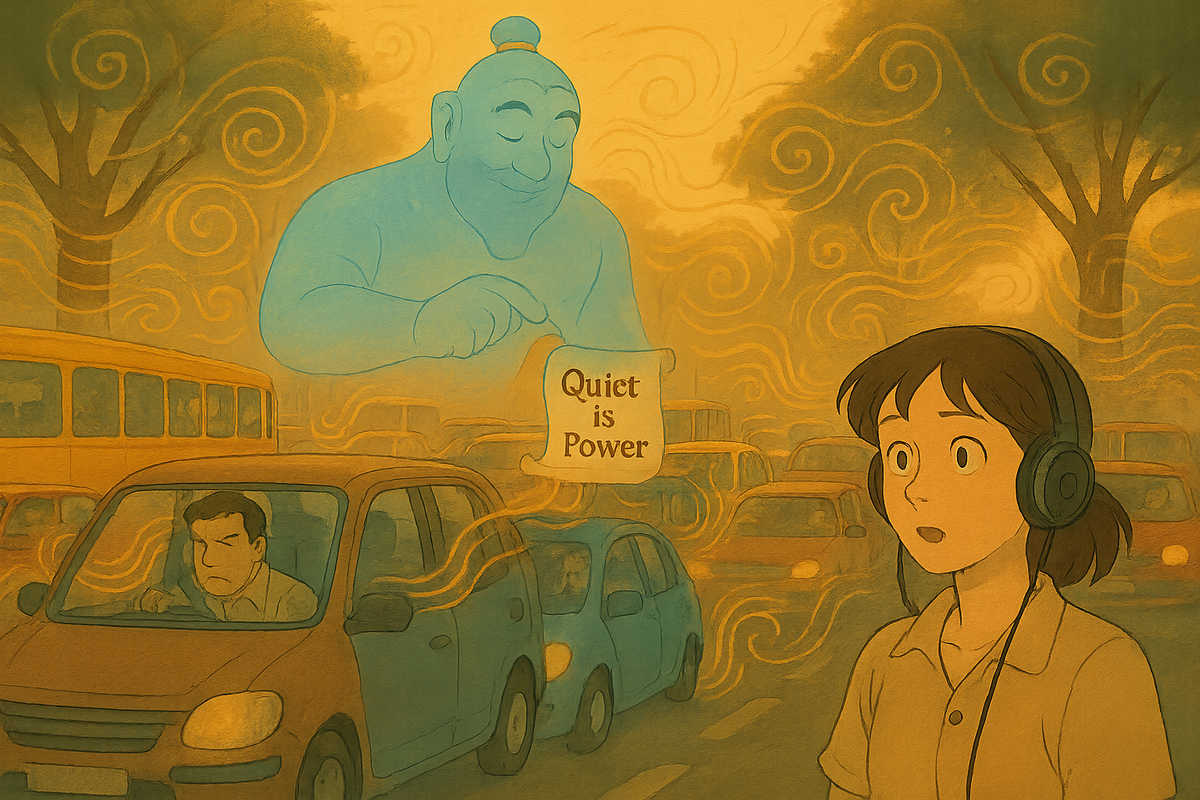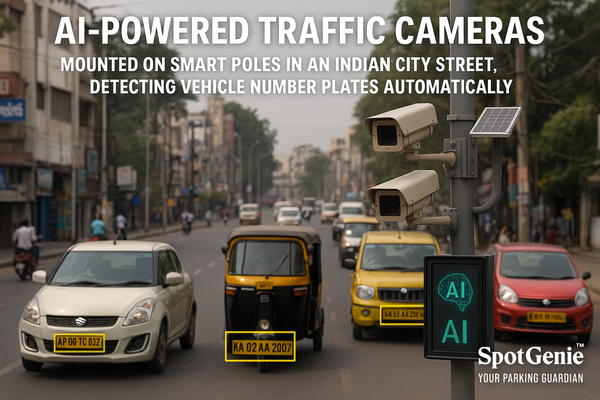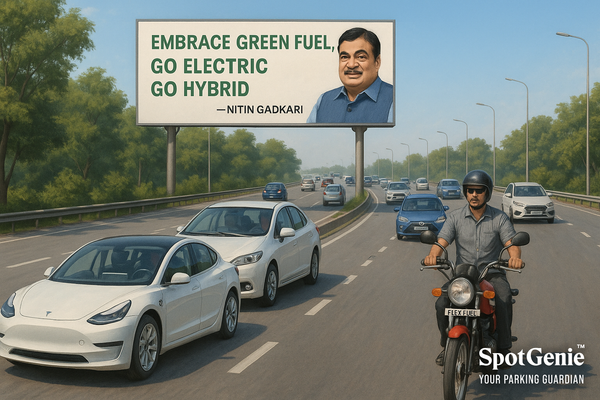The Science of Honking – Understanding Urban Noise in India
Explore the science of honking in Indian cities — its psychology, impact on health, and how SpotGenie Gyaan promotes smarter, quieter driving habits.

Explore the cultural, psychological, and environmental impact of honking in Indian cities — with insights from SpotGenie’s helpful genie.
The Science of Honking: Why Indian Roads Are So Loud
✨ Hello again, dear commuter. I’m SpotGenie — part wise watcher, part parking whisperer. Today, I’ll walk you through something most drivers hear more than their alarms: honking.
1. Introduction: Honking as Urban Soundscape
Honking is to Indian roads what chirping is to jungles — ever-present and oddly natural. But unlike birds, horns rarely calm nerves. In metros like Delhi, Mumbai, and Bengaluru, the symphony of honks can range from polite taps to prolonged blasts that serve no clear purpose other than venting frustration.
Honking in India isn’t just functional; it’s cultural, habitual, and emotional. But what lies beneath this behavior? Is it just poor road etiquette, or is there more science — and psychology — to this sonic phenomenon?
2. The Psychology of the Horn
Honking is more than a noise — it’s a message. In India, it often replaces turn signals, merges caution with aggression, and becomes a language of its own. But why do drivers overuse it?
- Stress Amplifier: Congested roads spike cortisol, making drivers more reactive.
- Control Illusion: A horn gives drivers a momentary sense of control in a chaotic system.
- Herd Mentality: When one honks, others follow — not always knowing why.
Behavioral science shows that honking is a reactive tool — a quick outlet when patience is short and movement is slower. And in cities where average speeds dip below 20 km/h during peak hours, impatience builds fast.
3. Honk Stats: India vs the World
India has some of the highest levels of noise pollution globally — and vehicle horns are a major contributor. According to the Central Pollution Control Board (CPCB), Delhi often crosses 90 decibels during peak hours, far exceeding the WHO’s safe limit of 55 dB for urban environments.
Here’s how we compare globally:
| City | Avg. Road Noise (dB) | WHO Safe Limit |
|---|---|---|
| Delhi | 88–92 dB | 55 dB |
| Mumbai | 85–90 dB | 55 dB |
| Bengaluru | 80–85 dB | 55 dB |
| Amsterdam | 65 dB | 55 dB |
4. Health Impacts of Excessive Honking
Noise pollution from honking is not just annoying — it’s a silent health hazard. Studies show that exposure to prolonged traffic noise can lead to hearing loss, increased blood pressure, and elevated stress hormones like cortisol.
Case in point: In 2020, Mumbai launched a unique initiative. Traffic police installed decibel meters at signals. If the noise exceeded 85 dB, the signal timer reset — adding more wait time. The result? A 40% reduction in unnecessary honking in trial zones. A message was loud and clear: patience is quieter.
5. Can Tech or Policy Solve It?
India has tried. From “No Honking” signs to awareness weeks, the message often gets lost in the roar. But now, cities are testing smarter tech:
- AI-powered noise cameras: Bengaluru and Delhi are piloting systems that detect excessive horn use and capture license plates for fines.
- Urban design changes: Reducing bottlenecks and better lane management can reduce the “need” to honk.
- Behavioral nudges: Campaigns like “Horn Not OK Please” have shown success — when backed by enforcement and community support.
6. Conclusion: Reclaiming Quiet, One Honk at a Time
Noise doesn’t just live outside — it burrows into our lives. But the solution isn’t complicated. It begins with awareness and a bit of restraint.
As your friendly city-side genie, I’ve seen magic happen when people pause instead of blast the horn. A little more patience on the road leads to a lot more peace in life.
So the next time your finger twitches over the horn, ask yourself — is it really helping? Or could silence be the kinder option?
Keywhonking in India, urban noise pollution, traffic noise impact, psychology of honking, Indian driving behavior, decibel levels in Indian cities, road noise India, SpotGenie Gyaan, urban traffic stress, AI traffic control India, horn not ok please, road etiquette India, Delhi traffic decibel levels, noise health hazards India
Follow us on:
🅾 Instagram |
ⓕ Facebook |
𝕏 X |
▶️ YouTube |
🌐 spotgenie.in
🔗 Continue Your Journey Through SpotGenie Gyaan
- AI on the Rails: Can Smart Tech Prevent India’s Next Train Tragedy?
- SpotGenie – Your Genie for No Parking, Towing Alerts & Emergencies
- How SpotGenie Helps Prevent Towing Disasters with Real-Time Alerts
- Why Every Driver Needs SpotGenie — For Safer, Kinder Driving
- Get SpotGenie Today – Smart Urban Communication Starts with a Scan
SpotGenie Gyaan isn’t just knowledge—it’s street-smart wisdom. Honk less, think more, and let tech make the commute a little kinder.



